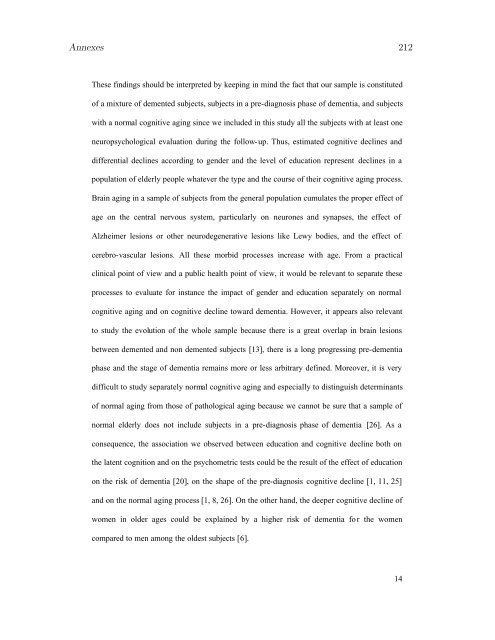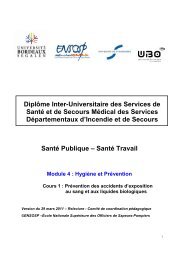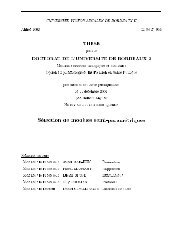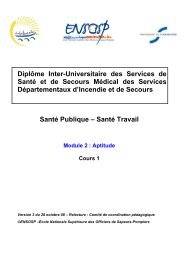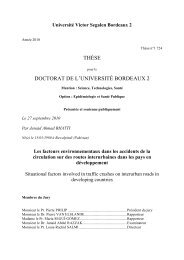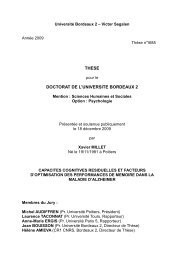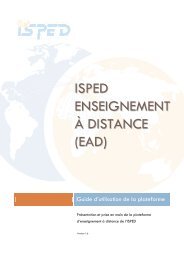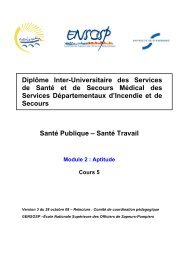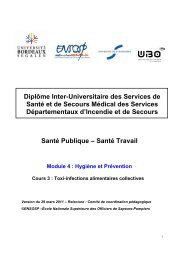Télécharger le texte intégral - ISPED-Enseignement à distance
Télécharger le texte intégral - ISPED-Enseignement à distance
Télécharger le texte intégral - ISPED-Enseignement à distance
- No tags were found...
Create successful ePaper yourself
Turn your PDF publications into a flip-book with our unique Google optimized e-Paper software.
Annexes 212These findings should be interpreted by keeping in mind the fact that our samp<strong>le</strong> is constitutedof a mixture of demented subjects, subjects in a pre-diagnosis phase of dementia, and subjectswith a normal cognitive aging since we included in this study all the subjects with at <strong>le</strong>ast oneneuropsychological evaluation during the follow-up. Thus, estimated cognitive declines anddifferential declines according to gender and the <strong>le</strong>vel of education represent declines in apopulation of elderly peop<strong>le</strong> whatever the type and the course of their cognitive aging process.Brain aging in a samp<strong>le</strong> of subjects from the general population cumulates the proper effect ofage on the central nervous system, particularly on neurones and synapses, the effect ofAlzheimer <strong>le</strong>sions or other neurodegenerative <strong>le</strong>sions like Lewy bodies, and the effect ofcerebro-vascular <strong>le</strong>sions. All these morbid processes increase with age. From a practicalclinical point of view and a public health point of view, it would be re<strong>le</strong>vant to separate theseprocesses to evaluate for instance the impact of gender and education separately on normalcognitive aging and on cognitive decline toward dementia. However, it appears also re<strong>le</strong>vantto study the evolution of the who<strong>le</strong> samp<strong>le</strong> because there is a great overlap in brain <strong>le</strong>sionsbetween demented and non demented subjects [13], there is a long progressing pre-dementiaphase and the stage of dementia remains more or <strong>le</strong>ss arbitrary defined. Moreover, it is verydifficult to study separately normal cognitive aging and especially to distinguish determinantsof normal aging from those of pathological aging because we cannot be sure that a samp<strong>le</strong> ofnormal elderly does not include subjects in a pre-diagnosis phase of dementia [26]. As aconsequence, the association we observed between education and cognitive decline both onthe latent cognition and on the psychometric tests could be the result of the effect of educationon the risk of dementia [20], on the shape of the pre-diagnosis cognitive decline [1, 11, 25]and on the normal aging process [1, 8, 26]. On the other hand, the deeper cognitive decline ofwomen in older ages could be explained by a higher risk of dementia for the womencompared to men among the oldest subjects [6].14


